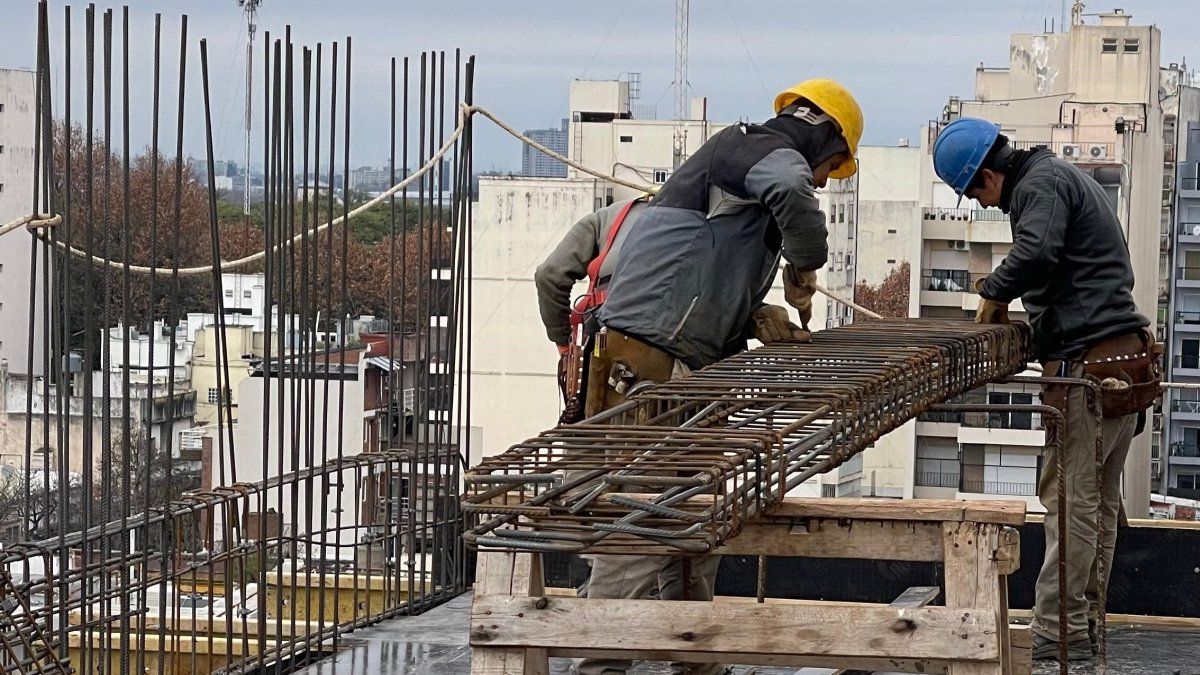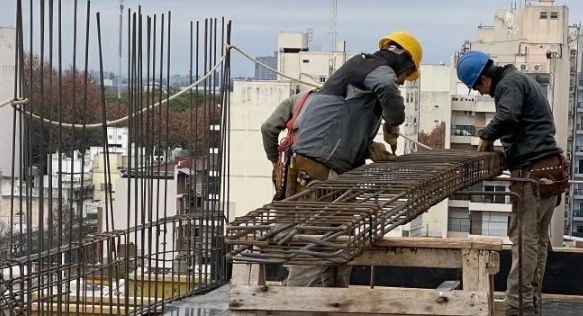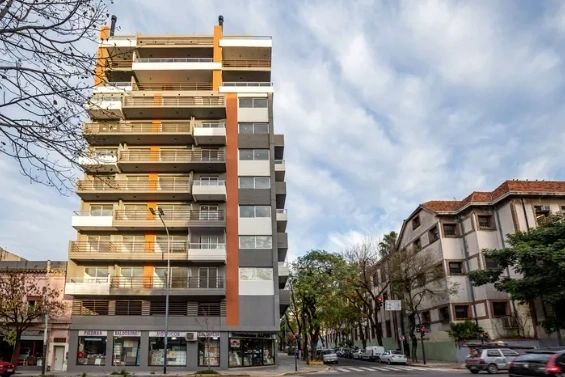BuySellBA
Administrator
Construction costs rose 1.5% in August, with increased pressure on labor - La Nacion Propiedades

Source:

 www.ambito.com
www.ambito.com
September 24, 2025
The price of materials needed to build a typical building in Buenos Aires City rose again in August, according to the Argentine Chamber of Construction. When will the increase slow?

Building a typical building in the city is no longer less than US$1,500 per square meter, which slows down the launch of new real estate projects.
The cost of constructing a typical building in the City of Buenos Aires rose 1.5% in August compared to July, according to the CAMARCO Indicator. The cost for this typical project—ground floor plus 14 floors—reached 17,187.6 points . The annual cumulative figure reached 11.9%.
The materials index rose 1.8% that month, to 19,490.2 points , reflecting strong pressure from inputs on total costs. The cumulative increase in this group was 10.8%.
The total cost reflected this combination: more expensive inputs and labor absorbing part of the adjustment, although not with the same intensity as materials. Various reporting companies agree that the increase in inputs shapes firm budgets for new projects.
The CAMARCO Indicator provides predictability for projecting costs. Builders, developers, and professionals use this data to budget construction, set sales or rental prices, and negotiate contracts.
In July, the total indicator had registered a larger increase, according to preliminary comparisons, suggesting that August moderated its pace, but without reversing the annual upward trend. The stability of imported inputs, energy prices, and interest rates are anticipated to be decisive factors for the remainder of the year.

Developers warn that the gap between the value of existing buildings and construction costs complicates the viability of new construction.
Other institutions that surveyed input prices (such as Grupo Construya and the Association of Builders of the Province of Buenos Aires) show similar figures, especially for basic materials such as cement, iron, and concrete. Wage negotiations directly impacted the labor price series by incorporating the wages approved by the UOCRA (United Nations Organization for Labor and Development) recognized in July.
Damián Tabakman , president of the Chamber of Urban Developers (CEDU), said that current prices limit profitability: "Costs in dollars already exceed the threshold of US$1,500 per m2 and many projects face the risk of non-viability if sales prices are not adjusted."
Along the same lines, Carlos Spina , president of the Association of Housing Entrepreneurs (AEV), explained that there is a significant gap between used and new housing. "Used housing is generally cheap, and very cheap compared to construction costs. This imbalance hinders the launch of new construction projects and increases the dependence on lines of credit, which are currently insufficient," he stated.
www.buysellba.com

Source:

Costos de construcción subieron 1,5% en agosto, con mayor presión sobre mano de obra
Los insumos para construir un edificio tipo en CABA volvieron a subir en agosto, informó la Cámara Argentina de la Construcción. ¿Cuándo se frenará el alza?
September 24, 2025
The price of materials needed to build a typical building in Buenos Aires City rose again in August, according to the Argentine Chamber of Construction. When will the increase slow?

Building a typical building in the city is no longer less than US$1,500 per square meter, which slows down the launch of new real estate projects.
The cost of constructing a typical building in the City of Buenos Aires rose 1.5% in August compared to July, according to the CAMARCO Indicator. The cost for this typical project—ground floor plus 14 floors—reached 17,187.6 points . The annual cumulative figure reached 11.9%.
The materials index rose 1.8% that month, to 19,490.2 points , reflecting strong pressure from inputs on total costs. The cumulative increase in this group was 10.8%.
The labor force indicator grew 0.7% monthly, reaching 13,812.6 points , with an annual variation of 14.3%. The UOCRA salary agreement approved in July (DI-2025-1734-APN-DNRYRT#MCH) is incorporated into the calculation.Influence of materials
The monthly review of the indicator reveals differences between the series. Materials led the increase compared to the sector average. Labor showed a smaller but sustained increase, favored by the recent wage adjustment.The total cost reflected this combination: more expensive inputs and labor absorbing part of the adjustment, although not with the same intensity as materials. Various reporting companies agree that the increase in inputs shapes firm budgets for new projects.
The CAMARCO Indicator provides predictability for projecting costs. Builders, developers, and professionals use this data to budget construction, set sales or rental prices, and negotiate contracts.
In July, the total indicator had registered a larger increase, according to preliminary comparisons, suggesting that August moderated its pace, but without reversing the annual upward trend. The stability of imported inputs, energy prices, and interest rates are anticipated to be decisive factors for the remainder of the year.

Developers warn that the gap between the value of existing buildings and construction costs complicates the viability of new construction.
Other institutions that surveyed input prices (such as Grupo Construya and the Association of Builders of the Province of Buenos Aires) show similar figures, especially for basic materials such as cement, iron, and concrete. Wage negotiations directly impacted the labor price series by incorporating the wages approved by the UOCRA (United Nations Organization for Labor and Development) recognized in July.
Will they stop rising?
Building costs have stabilized around a floor of US$1,500 per square meter in the City of Buenos Aires. This minimum price makes it difficult to start new projects and forces developers to recalculate budgets in a context of reduced access to credit.Damián Tabakman , president of the Chamber of Urban Developers (CEDU), said that current prices limit profitability: "Costs in dollars already exceed the threshold of US$1,500 per m2 and many projects face the risk of non-viability if sales prices are not adjusted."
Along the same lines, Carlos Spina , president of the Association of Housing Entrepreneurs (AEV), explained that there is a significant gap between used and new housing. "Used housing is generally cheap, and very cheap compared to construction costs. This imbalance hinders the launch of new construction projects and increases the dependence on lines of credit, which are currently insufficient," he stated.
www.buysellba.com

